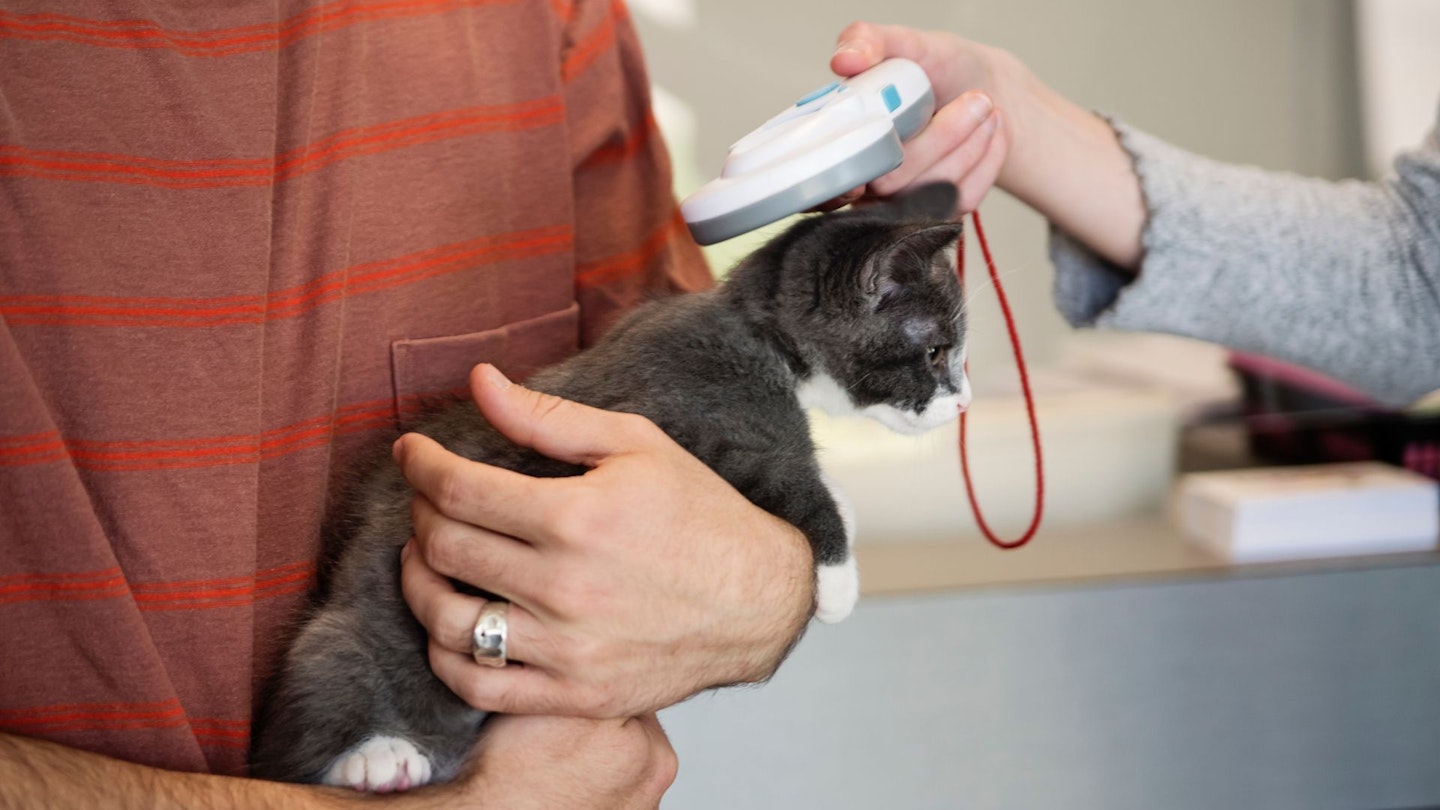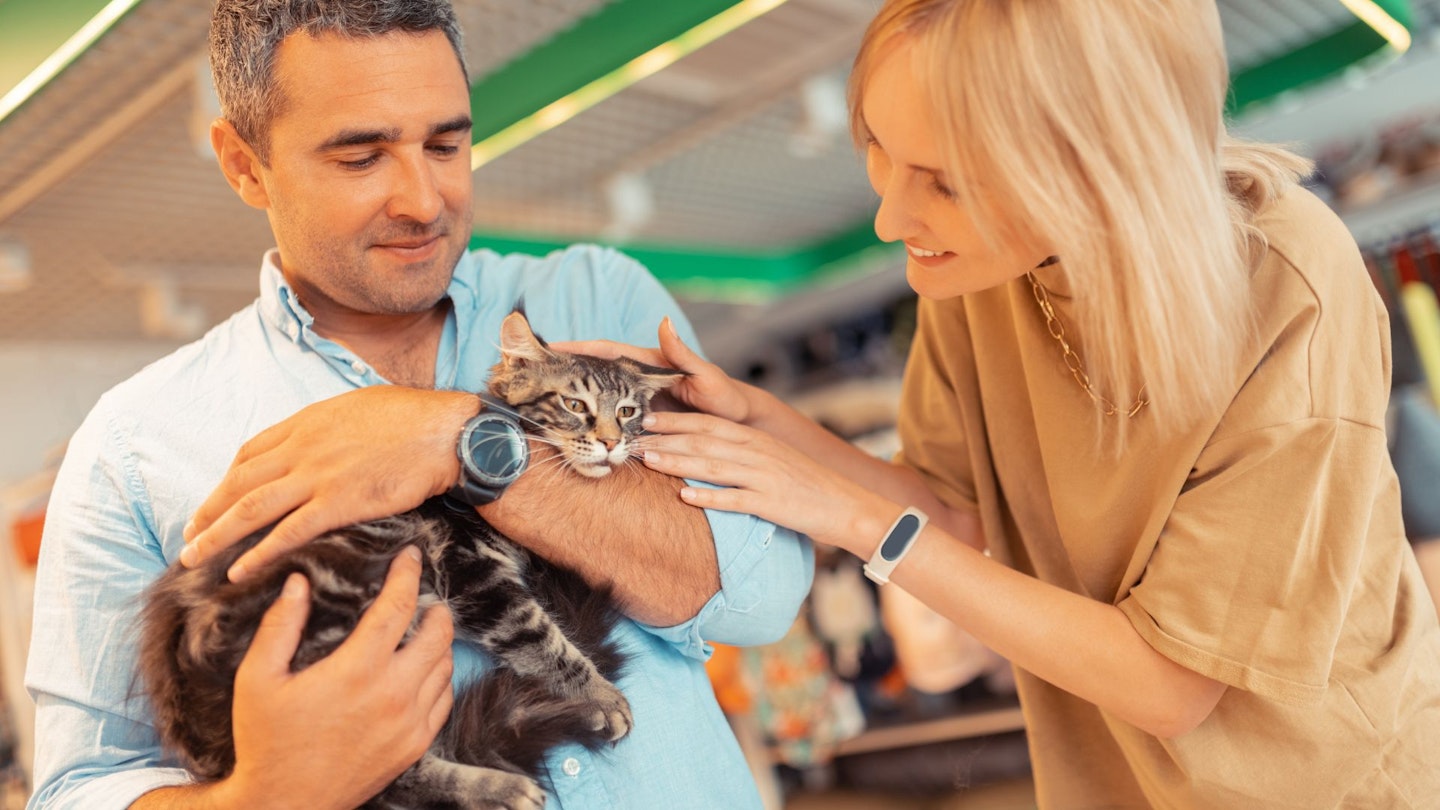In the UK, millions of us cherish our feline friends as furry members of our families and we’d go to great lengths to keep them as safe and secure as possible. To help with this, the UK government has recently introduced new legislation mandating the microchipping of all pet cats by the time they reach 20 weeks of age.
We all know that cats are curious creatures and have natural instincts to roam and explore new environments. While the sights, sounds and smells of being out in the great outdoors are exciting, they can lure your kitty into straying further than the surroundings of home, which is out of range for GPS cat trackers. This then brings with it dangers of traffic, predators and other environmental hazards. It's absolutely heartbreaking when you can't find your precious pet, which is why one of the main reasons the government has passed this mandatory cat microchipping law is to make it easier for lost moggies to be reunited with their owners. This will give you peace of mind that if your kitty were to go walkabout, you’ve got a greater chance of getting them back to where they belong.
There are over nine million pet cats in the UK, with as many as 2.3 million of them being unchipped - these new laws take a big step towards enhancing feline welfare and promoting responsible pet ownership. However, research from HomeAgain, the UK official Microchip Registration Database, shows that over a third of cat owners are unaware of the new legal requirement so you may be unsure of what exactly these new cat microchipping regulations mean for you and your moggy. We’ve got all the information you need to know about these new cat microchipping laws, including when they came into effect and what happens if you don’t comply, which could end up in you facing a huge fine.

Is cat microchipping mandatory?
As we've mentioned, cat microchipping is now mandatory in the UK and it must be done by the time your kitten reaches 20 weeks old. Microchipping is already compulsory for dogs and it has proven to be extremely beneficial for identifying lost pets, with information from the Government stating that microchipped dogs are more than twice as likely to be reunited with their owner.
It's worth noting that microchipping is not compulsory for free-living cats that, in the Government's words, 'live with little or no human interaction or dependency'. However, this applies more to farm or feral cats so all pet cats will fall into the mandatory microchipping category.
When does cat microchipping become law in the UK?
The new laws on cat microchipping came into effect on 10 June 2024. The legal deadline was confirmed in legislation laid in March 2023 so if your cat is now found without a microchip, you will have 21 days to get one sorted or you could face up to £500 fine!
What is cat microchipping?
Cat microchipping essentially involves embedding a tiny, scannable chip the size of a grain of rice under your cat's skin, usually between their shoulder blades, that stores information about your cat as well as your details as their owner. Vets, animal shelters and other animal professionals can then scan your cat with a microchip reader in case they ever stray too far and can use your details to reunite you with your missing moggy.
What does cat microchipping do?
Cat microchipping is mainly designed to provide a way to reliably identify cats and reunite them with their owners if they get lost or stolen. You may have a cat collar on your moggy with an ID tag full of information, but these can easily be removed by other people or slipped out of when your cat is out and about. A microchip offers a permanent form of identification that stays with your kitty for their entire life and can easily be updated with new contact information and addresses when needed. This information being readily available by a simple scan can come particularly in handy in cases of cat theft and in the unfortunate event of a cat being found injured or deceased, the right owners can be properly notified.

How much is cat microchipping?
The average price in the UK for cat microchipping is around £25, but this can vary depending on where you go. Your local veterinary clinic, animal shelters and pet charities will be able to do this for you, so you can enquire about a couple of places to get the best price.
How do you tell if a cat is microchipped?
The easiest way to tell if a cat is microchipped is by scanning them with a microchip scanner as it will be able to detect if there is one present under their fur. Just like places that offer microchipping services, you can expect vets, pet charities and animal shelters to have a scanner so if you spot a cat that looks a bit lost or injured, you can take them to be scanned at one of these places to help reunite them with their owner.
Rosie Floyd is a Senior Home & Pets Product Writer for Take A Break Pets, specialising in all things dogs. She grew up always having at least one dog as part of the family and has experience in owning a variety of breeds, including Labradors, Cockapoos and Yorkshire Terriers.
